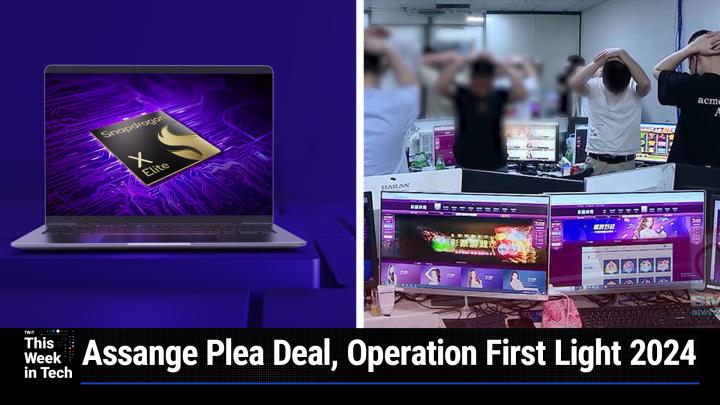Julian Assange: Hero, Villain, or Something in Between?
AI created, human edited.
In a recent episode of This Week in Tech (TWiT), host Leo Laporte and guests Cathy Gellis, Ryan Shrout, and Doc Rock dove into the complex and controversial case of Julian Assange. The WikiLeaks founder's recent plea deal and release from UK detention sparked a nuanced discussion about the intersection of journalism, national security, and the role of whistleblowers in modern society.
The conversation began with Laporte setting the stage, recounting Assange's journey from WikiLeaks founder to his recent plea deal. The panel grappled with the moral and legal implications of Assange's actions, particularly in light of WikiLeaks' publication of classified US documents and the infamous "Collateral Murder" video.
Cathy Gellis, an attorney admitted to practice before the Supreme Court, offered valuable legal context. She highlighted the Bartnicki v. Vopper case, which protects journalists who publish illegally obtained information, provided they weren't involved in the illegal acquisition. Gellis emphasized the crucial distinction between neutral reporting and active participation in obtaining classified information.
The panel explored the fine line between journalism and espionage, with Laporte and Gellis both expressing conflicted feelings about Assange's case. They acknowledged the importance of exposing government wrongdoing while also questioning Assange's methods and potential collaboration with foreign intelligence agencies.
Ryan Shrout, drawing on his own background in journalism, argued for erring on the side of press freedom. He stressed that the illegal acquisition of documents doesn't negate the importance of the information revealed, citing historical examples like the Pentagon Papers.
Doc Rock brought a unique perspective as a former military medic, highlighting the complexity of cases that fall into gray areas of law enforcement and national security. He suggested that while Assange may have been scapegoated to some degree, bringing these issues to light serves an important purpose.
The discussion touched on related cases, including those of Chelsea Manning and Edward Snowden, further illustrating the ongoing tension between government secrecy and the public's right to know. Gellis raised important questions about the lack of clear frameworks for handling whistleblowers and leaks of classified information.
Ultimately, the TWiT panel concluded that the full story of Assange's case may never be known. They emphasized the need for coherent policies that balance national security concerns with the protection of press freedom and whistleblowers. Sagas like this illuminate broader implications for journalism and government transparency in the digital age.
To hear the full conversation and more in-depth analysis, be sure to listen to the complete episode of This Week in Tech.
Subscribe for more!
